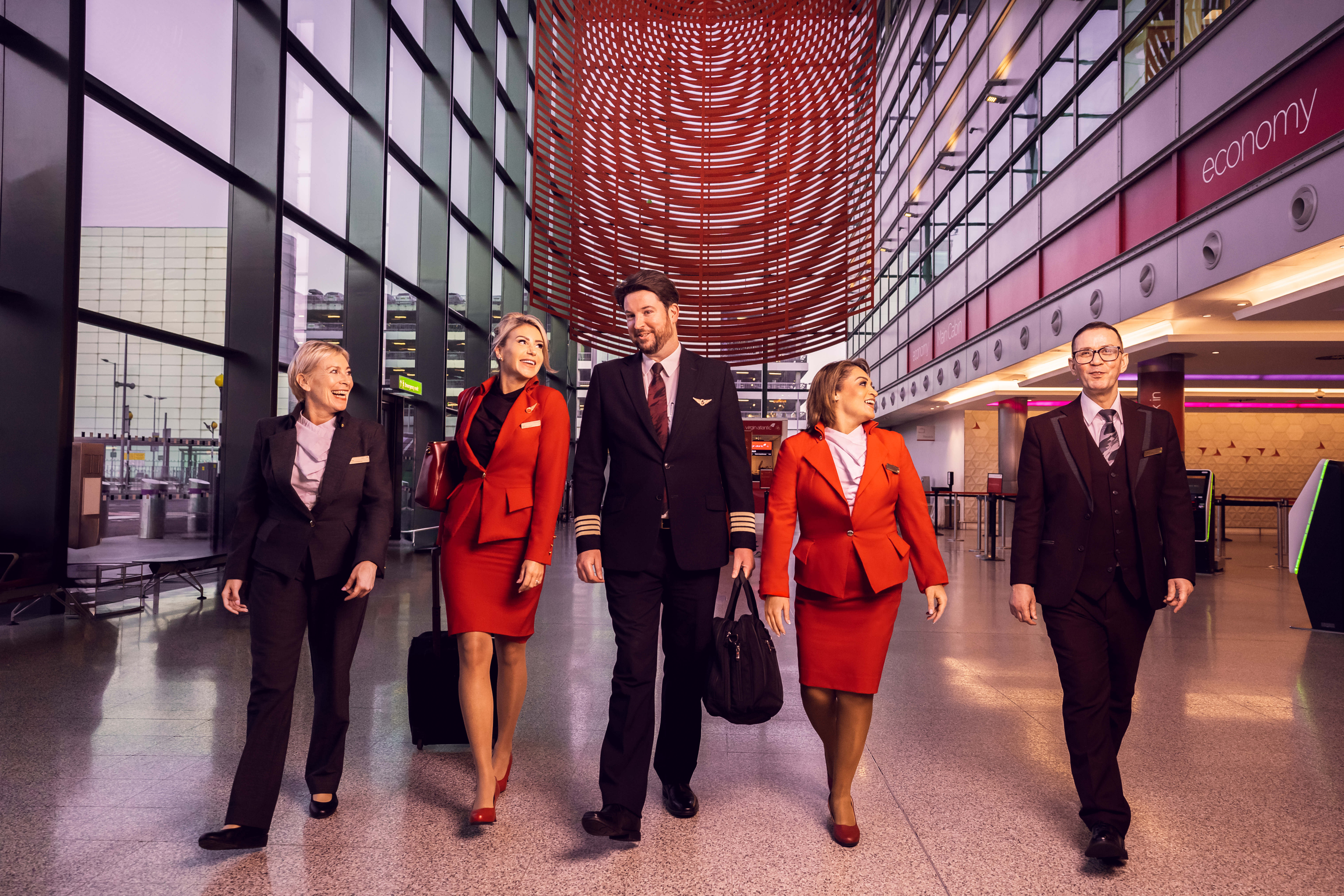

Virgin Atlantic first took to the skies in 1984, aiming to create the best experience for its customers. The British flag carrier now offers non-stop transatlantic routes including New York, Orlando, the Caribbean, Delhi and Johannesburg, and 8500 employees. Its joint venture with Delta, Air France and KLM allows passengers to seamlessly connect to over 350 cities across North America, Europe and the UK. With a history of doing things differently and leading the way with fresh ideas, Virgin Atlantic is working hard to become more sustainable for the planet and its destinations, and make travel open to everyone.
How to...?
Benefits
At Virgin Atlantic, we've always recognized that security is fundamental to our operations and reputation, and I've personally had responsibility over it for almost a decade. Historically, our efforts focused on responding efficiently and effectively to incidents or regulatory changes, and we had put into place robust systems to deal with such events.
As the world has become more interconnected and threats have become more diverse and sophisticated, we have understood that security must be embedded into our corporate DNA. Every employee must be aware of their role in safeguarding our passengers, crews and assets. And, as an organization, our approach to security must be proactive and tailored to the specific risks involved. Traditional, compliance-based models, however, don't enable us to pre-empt security events and respond with agility strategically. And that's why we played an active role, as a pathfinder organization assisting the UK Civil Aviation Authority, in the development of its security management system framework since 2014.
SeMS allows siloes to be broken down, for security to be better integrated at every level of the organization, and for continuous improvement, which are essential for properly managing security today. At Virgin Atlantic, however, we believe in going the extra mile, and we wanted to ensure our security meets and exceeds global regulatory expectations.
When IATA launched its SeMS Certification program in October, we knew it would allow us to both enhance our threat anticipation and mitigation capabilities and establish a comprehensive, integrated security culture. By participating in this global, industry-defining initiative, and being one of the first airlines in the world to do so, we would also be able to strengthen the trust of our stakeholders, including regulators, partners and, of course, passengers.
Our SeMS certification journey took approximately four months from initiation to final assessment, which was a lot shorter than might normally be expected, but we already had the building blocks from our UK CAA certification. To go from meeting national to global requirements, the IATA framework proved invaluable. It provided a structured, practical guide aligned with ICAO principles, which enabled us to identify maturity levels and zoom in on the areas that required improvement.
Approximately 25 key personnel were involved, from security, safety operations, compliance, and leadership, as well as several of our key suppliers and aviation partners. To align everyone on goals and level-set understanding, we had in-person briefings to key staff from IATA, and virtual classroom training for all personnel, led by expert instructors from IATA, with a deep understanding of the airline context and the application of SeMS. Additionally, our in-house security specialists gave workshops on the precise application of SeMS to real-world scenarios. With this thorough preparation, staff felt empowered and ready to move ahead with the assessment process.
After our initial self-assessment and document review, we had to plan carefully for the IATA expert assessment, and IATA’s roadmap, as well as the engagement of our teams, all of which helped the process go smoothly. The guidance was clear, and recommendations were specific, making implementation relatively straightforward. The assessment itself was both collaborative and constructive, and the assessor gave us practical feedback and a detailed action plan that enabled us to achieve the certification without a hitch.
The assessment was not just a test to see if we had understood correctly; it provided an opportunity to grow our security capability and function. With the real and valuable insight the IATA assessor gave us, we were able to reflect on how we were delivering our security strategy, and identify improvements and developments we could make immediately and in the future.

Virgin Atlantic's security management system was certified as "Operating" by IATA in 2025, and we are proud to be one of the first airlines to have achieved this global standard. The IATA SeMS Certification Program fully met our expectations. It's not just a badge of recognition; it's a framework for transformation, bringing structure, international credibility, and real-world improvements that benefit the entire business.
With the program, we have been able to embed a more formal and dynamic risk-management system into our culture. We've seen improved cross-departmental collaboration, as well as stronger engagement from non-security staff, and it is clear that the holistic nature of SeMS has led to better organizational alignment on security. While still early, we're already noticing more incidents being reported, faster incident response times, better communication of risks between different functions, and enhanced audit scores in related compliance areas. People feel like they can do better, and they are being more diligent, particularly when looking for the root cause of areas of weakness, which is the basis for continuous improvement.
In the immediate, therefore, our certified system improves our responsiveness and decision-making regarding security.
Meanwhile, our enhanced security profile, demonstrating our adherence to global industry standards, has already helped in contract negotiations, particularly with corporate clients and codeshare partners who prioritize risk-aware airlines.

Over the long term, we expect to reduce our risk exposure and benefit from the growth in confidence of our regulators and customers. But we also anticipate such impacts as an improved staff retention rate, as our already engaged employees and suppliers find greater meaning in what they are doing. Ultimately, all these long-term effects will strengthen our operational resilience and enable us to continue to realize our vision of being the most loved travel company.